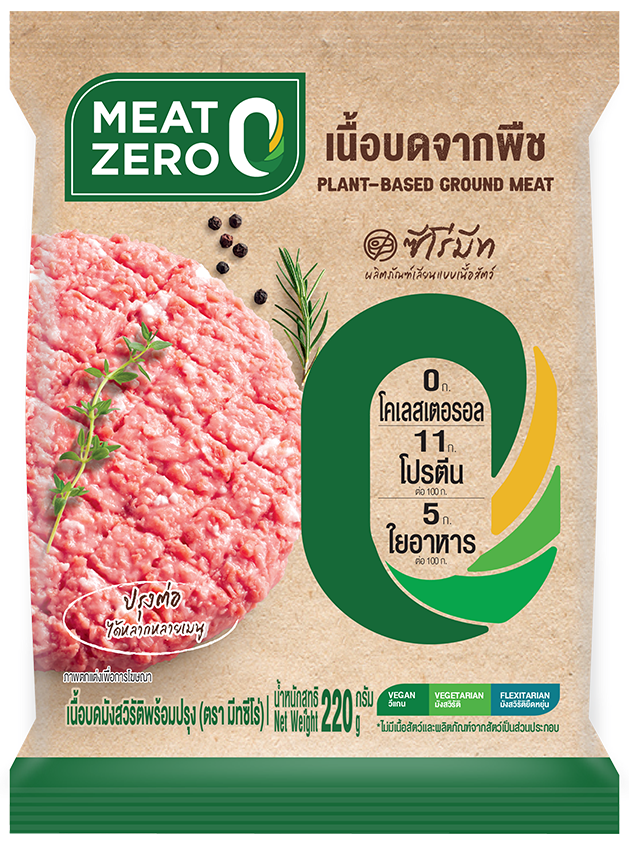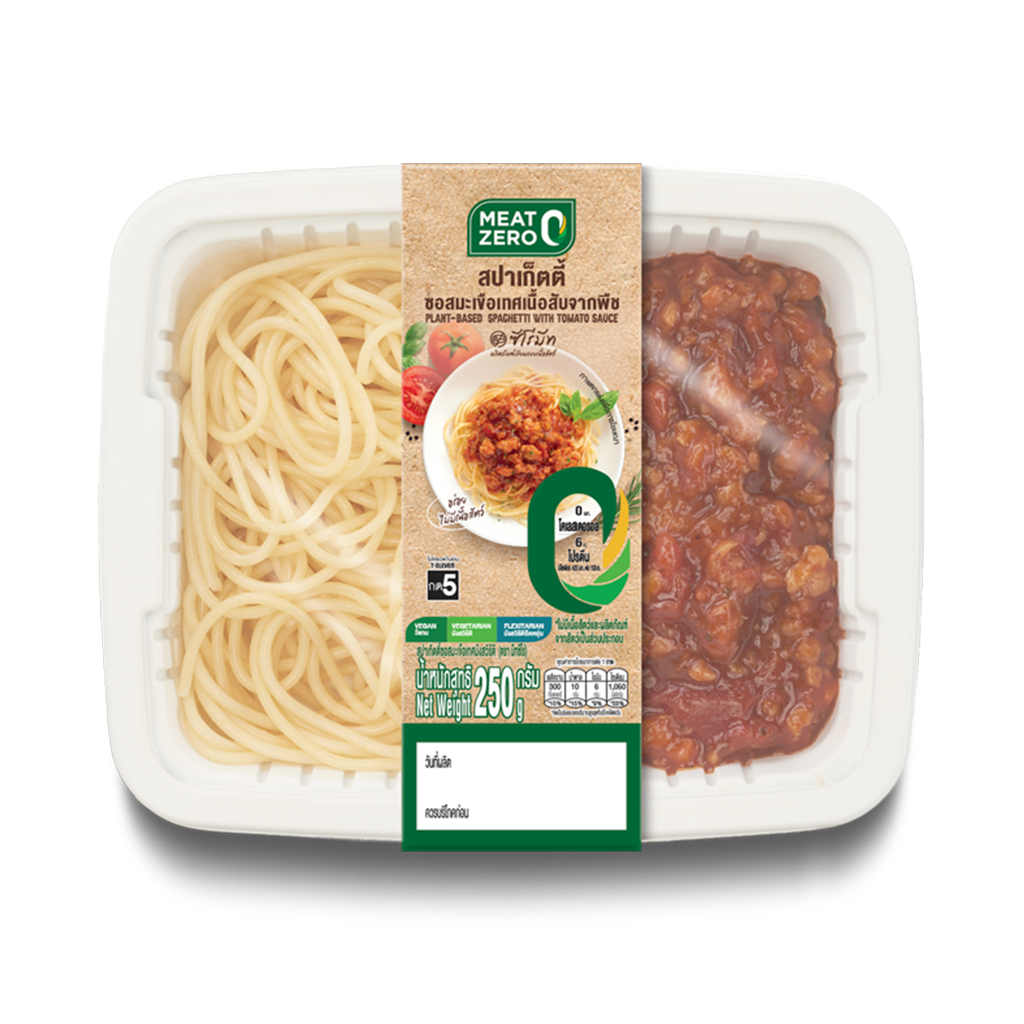3 Mins Read
Thai food manufacturer CPF is making a bid for plant-based success across the Asian region with its range of meat substitutes designed for flexitarians. After launching in their home country earlier this yera, MEAT ZERO has announced its arrival in the Hong Kong market. CPF aims to make Meat Zero one of the top three alt-protein brands in Asia within three years.
CPF says that it took almost three years to perfect the MEAT ZERO recipe. Now, its proprietary “Plant-Tec” technology is being used to replicate the look, taste, and texture of conventional meat. CEO Prasit Boondoungprasert has brought Hong Kong popstar Edan Lui on board to help promote products to young and health-conscious consumers. “Edan is going to show us how incredible MEAT ZERO is,” he said.

Zeroing in on the plant-based market
It took more than 2,000 tests to nail down the Plant-Tec innovation. Working with Japanese company Fuji Oil, the technique used to transform plant-based ingredients into meat substitutes remains undisclosed. CPF claims that: “MEAT ZERO is as tasty as real meat and consumers are barely able to tell if they are eating plants or real meats, and it contains health nutrition from high fiber plant-based protein, which is good for intestine and bowel, and low cholesterol. Meanwhile, it aims to satisfy consumers who are cutting down meat consumption.”
Not all of the ready-to-cook and ready-to-eat dishes being launched in Hong Kong are vegan-friendly. Of the six products, three are suitable for vegans, with the rest containing egg white powder. Packets are labelled as vegan/vegetarian/flexitarian, taking any guesswork out for consumers.
The Hong Kong market can expect to see vegan mince, ready meals like spaghetti bolognese and non-vegan nuggets, bologna and patties. All products are non-GMO, high in protein, and contain no dietary cholesterol or preservatives.

Thailand’s growing scene
CPF is not the only manufacturer coming out of Thailand with Hong Kong markets in its sights. Startup Let’s Plant Meat announced earlier this year that it was launching five items there. Following a successful preliminary launch, more products will be rolled out. The company is notable for trying to source ingredients as locally as possible. This has resulted in a price bracket that consumers find less prohibitive .
A handful of homegrown alt-protein startups have debuted in Thailand of late. Krop offers ready-made frozen dim sum with a pork analogue. Elsewhere, Swees is creating a line of vegan-friendly cheeses. Made from locally-grown soybeans, the range is extensive and can used just like conventional dairy. More Meat has created a high protein no-animal mince with local dishes in mind. The mushroom-based product features natural beetroot colouring and is easy to use as cooks would conventional mince.
The rise in plant-based eating in Thailand has been attributed to campaigns such as the Bangkok Climate Clock. Screens have been placed in prominent subway station positions with the amount of time left to act to combat climate change clearly displayed. Domestic food brands have also enabled flexitarian eating to remain competitively priced.
Lead image courtesy of CPF.





